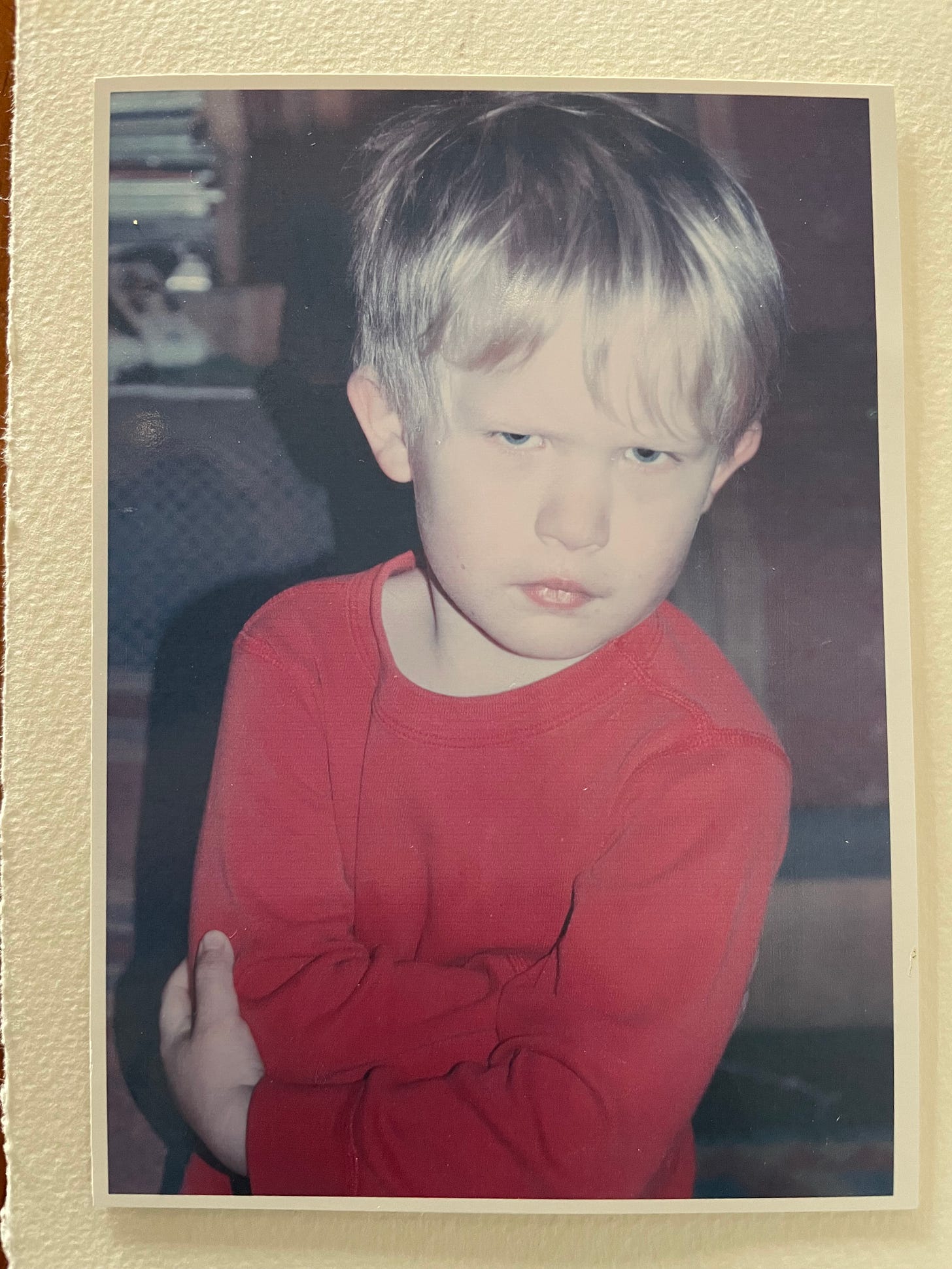First, Happy New Year and thank you for continuing to read The Lazy Person’s Guide to Parenting.
Second, a very quick recap: the kid was a jerk last week, and when I’d calmed down, I asked myself the same three questions I’d been asking about upsets since he was born: Was he a. tired? b. hungry? c. overwhelmed? The answer in this (and almost every other) case was resoundingly yes, and gave me a way to be the grown-up and fix what could be fixed (a bowl full of blueberries), and understand what couldn’t (tired and overwhelmed).
Being the grown-up is so weird. I’ve been a parent for more than twenty years and I still think it’s ridiculous that people are allowed to be in charge of the care, feeding, and well-being of other people, much less that we do it without a manual or classes or technical training of any kind. And when I get hooked by something my kid does – getting “hooked” means letting something get control over my emotions or common sense – I feel like the opposite of a grown-up.
Honestly, that’s usually what’s at play for me in those situations: my kid does something thoughtless (because teen brain), and something about the way I put myself together when I was young gets triggered, and I go right back to that time of knee-jerk reaction instead of calm, rational thought. Anger is usually a big indicator, especially if my anger feels outsized or doesn’t go away quickly. And if a walk or a closed door doesn’t calm me down, Ed can usually be counted on to remind me that my reaction isn’t about the kid at all – he was just the hand that pushed the detonator. The bomb was already there with the wire in place and a fuse that happened to be primed and ready to go.
Dismantling the bomb is the super grown-up thing to do, though it honestly usually requires therapy, vigilance, and the kind of introspection that probably shouldn’t be done unsupervised. And no matter how good I get at identifying the make and model of the bomb, my first and often most difficult challenge is to recognize that there’s a bomb at the end of that short fuse, and it’s mine.
The emotionally evolved people among us might be able to identify irrational anger as a symptom that our own bombs are getting triggered, but just like my son’s misophonia (irrational anger at the sound of chewing), knowing anger isn’t rational and having the presence of mind to do something constructive about it are wildly different skill sets. So, if dodgy self-regulation is at play, having people in your life who can call you on your sh*& is vital.
Happily for me, my husband is one of those people I’ve given permission to call me on my unresolved stuff. That’s actually key – permission. It’s saying to another person, “I trust you to have my back, which means that when you’re calling out my irrational anger, you’re doing it from a place of love, not condemnation.” Language is a huge part of that, with words that support and care instead of accuse and hurt – “hey, you seem really angry. Is there maybe something else that got triggered by that?” Or even, “I got this. Take whatever time you need to figure out what’s really going on.” Being angry is hard, and the inevitable guilt for the overreaction is uncomfortable enough that extra punishment isn’t necessary. At the end of the day, when we’ve cooled down, we know that our buttons got pushed and our anger is outsized, and we’re far more likely to apologize and attempt to dismantle those bombs when our faces weren’t rubbed in it.
I guess what I’m saying is that overwhelm hits all of us, from babies learning to crawl, to teens trying to deal, to parents remembering to breathe, and we all need grace as we navigate our oversized and irrational reactions to fuses we didn’t realize were laid and bombs we hadn’t known were built.
Grace and snacks.
A bowl full of blueberries is a good place to start.





Grace and snacks. ♥️